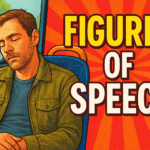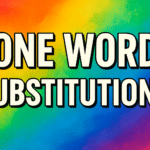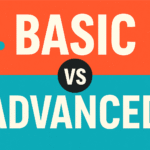Explanation of Verbs
A verb is a part of speech that expresses an action, occurrence, or state of being. It is often described as the “doing” or “being” word in a sentence, conveying what the subject is doing, experiencing, or existing as. Verbs are essential in forming complete sentences, as they provide the main action or link the subject to additional information.
Key Characteristics of Verbs:
- Action or State: Verbs can describe physical or mental actions (e.g., run, think), occurrences (e.g., happen, become), or states of being (e.g., is, seem).
- Tense: Verbs indicate the time of action or state (past, present, future), e.g., walked (past), walk (present), will walk (future).
- Subject Agreement: Verbs agree with the subject in number (singular/plural) and person (first, second, third), e.g., “She walks” vs. “They walk.”
- Types:
- Action Verbs: Describe physical or mental actions (e.g., jump, decide).
- Linking Verbs: Connect the subject to additional information about it (e.g., is, seem, become).
- Auxiliary (Helping) Verbs: Support the main verb to form tenses, moods, or voices (e.g., have, will, be).
- Transitive Verbs: Require an object to complete their meaning (e.g., kick the ball).
- Intransitive Verbs: Do not need an object (e.g., sleep).
- Modal Verbs: Express possibility, necessity, or ability (e.g., can, must, should).
- Forms: Verbs change forms to indicate tense, mood, or aspect (e.g., walk, walked, walking).
Importance of Verbs:
Verbs are the backbone of a sentence, providing the action or state that drives the meaning. Without a verb, a sentence is typically incomplete (unless it’s a minor sentence type, like an exclamation). They allow us to express time, mood, and the relationship between the subject and other elements in a sentence.
Examples of Verbs in Sentences:
- Action Verb (Physical):
- Sentence: She runs every morning.
- Explanation: “Runs” describes the physical action performed by the subject “she.”
- Action Verb (Mental):
- Sentence: He thinks deeply about the problem.
- Explanation: “Thinks” indicates a mental action or process.
- Linking Verb:
- Sentence: The soup is delicious.
- Explanation: “Is” links the subject “soup” to the description “delicious,” indicating a state of being.
- Auxiliary Verb:
- Sentence: They have finished their homework.
- Explanation: “Have” helps the main verb “finished” to form the present perfect tense.
- Transitive Verb:
- Sentence: She kicked the ball.
- Explanation: “Kicked” requires the object “ball” to complete its meaning.
- Intransitive Verb:
- Sentence: The baby slept peacefully.
- Explanation: “Slept” does not need an object to convey a complete action.
- Modal Verb:
- Sentence: You should study for the exam.
- Explanation: “Should” expresses advice or obligation, modifying the main verb “study.”
- Verb in Different Tenses:
- Present: I sing in the choir.
- Past: I sang yesterday.
- Future: I will sing tomorrow.
- Explanation: The verb “sing” changes form to indicate different times.
- Progressive Form:
- Sentence: They are dancing at the party.
- Explanation: “Are dancing” (progressive form) indicates an ongoing action in the present.
- Passive Voice:
- Sentence: The cake was eaten by the children.
- Explanation: “Was eaten” is a passive verb, showing the subject “cake” receives the action.
Additional Notes:
- Regular vs. Irregular Verbs: Regular verbs follow a predictable pattern for past tense (e.g., walk → walked), while irregular verbs do not (e.g., go → went).
- Phrasal Verbs: Verbs combined with prepositions or adverbs to create new meanings (e.g., “give up” means to quit).
- Mood: Verbs can express different moods, like indicative (facts), imperative (commands), or subjunctive (hypothetical situations).








